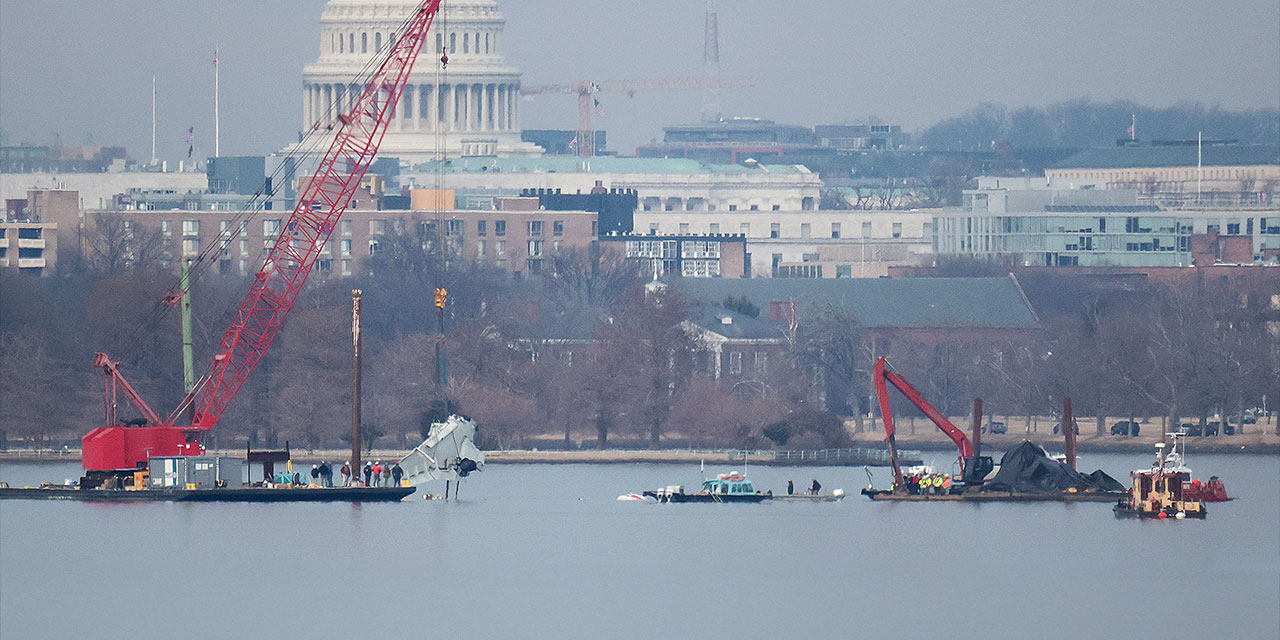|
Forwarded this email? Sign up for free to have it sent directly to your inbox. |
|
|
Good morning,
Today, we’re looking at America’s broken air-traffic control system, how the Catholic Church became an advocate for open borders, and why urban leaders should work with Trump on immigration.
Don’t forget to write to us at editors@city-journal.org with questions or comments. |
|
|
Investigators are still sorting out last week’s deadly collision between a Black Hawk helicopter and an American Airlines passenger jet over the Potomac River in Washington. At least one fact, however, is incontrovertible, City Journal contributing editor John Tierney writes: the United States air-traffic control system “has become an international disgrace,” a nightmare of obsolete technology and ineffective management.
In other advanced nations, oversight of aircraft is transferred from one air-traffic controller to another by computer. In the United States, controllers perform this task by handing one another paper “flight strips.” Where controllers overseas can rely on high-tech tools to monitor planes on runways, “many American controllers still have to look out the window.”
The core problem: the air-traffic control system is overseen by the Federal Aviation Administration, the agency that also monitors flight safety. In other words, the watchdog is watching itself. Most other countries separate the two roles. The first Trump administration tried to reform the system, but its efforts were grounded by opposition from congressional Democrats and private-plane operators. In the wake of the crash, can the second Trump administration—in particular, its Elon Musk-led Department of Government Efficiency—modernize our air-traffic control system?
Read Tierney’s take here. |
|
|
|
After the Reagan Airport disaster, will we finally reform the FAA? |
|
|
Vice President J. D. Vance made waves recently when, appearing on CBS’s Face the Nation, he responded to Catholic Church criticisms of the Trump administration’s deportation of illegal aliens. A Catholic himself, Vance conceded that he was “heartbroken” by the disapproval but pointed out that the Church is receiving more than $100 million to help resettle illegal migrants. “Are they worried about humanitarian concerns?” the vice president asked. “Or are they actually worried about their bottom line?”
Vance’s question is right on target, writes City Journal senior editor Steven Malanga. The Church has become one of the largest government contractors of immigration services and thus “one of the chief facilitators of the Biden administration’s loose borders policy.” It’s a long way from the Church’s older model of purely charitable work, largely funded by parishioners. Now, in an age of shrinking congregations and declining church attendance on Sunday, the Church is looking increasingly to the government for largesse—and supporting causes, like illegal migration, that put it at odds with many in the pews.
Read Malanga’s analysis here. |
|
|
City leaders aren’t likely to agree with the new administration on much, but they should cooperate with federal officials when it comes to deporting illegal immigrants. Their cities would be much better off. And they can take a page right out of Trump’s playbook: Make a deal with him.
“City governments could amend their sanctuary laws to permit cooperation with federal immigration officials; in exchange, Trump could agree to prioritize the expulsion of gang members and criminal aliens,” write John Ketcham, director of cities at the Manhattan Institute, and Paul Dreyer, cities policy analyst at the Manhattan Institute. “This would provide security for peaceful migrants who arrived before the Biden administration’s recklessly lax border policies, let Trump make good on his core promise, and make cities safer.”
And that’s just one example of what these deals could look like. Read the rest of their ideas here. |
|
|
A quarterly magazine of urban affairs, published by the Manhattan Institute, edited by Brian C. Anderson. |
|
|
Copyright © 2025 Manhattan Institute, All rights reserved. |
|
|
|




